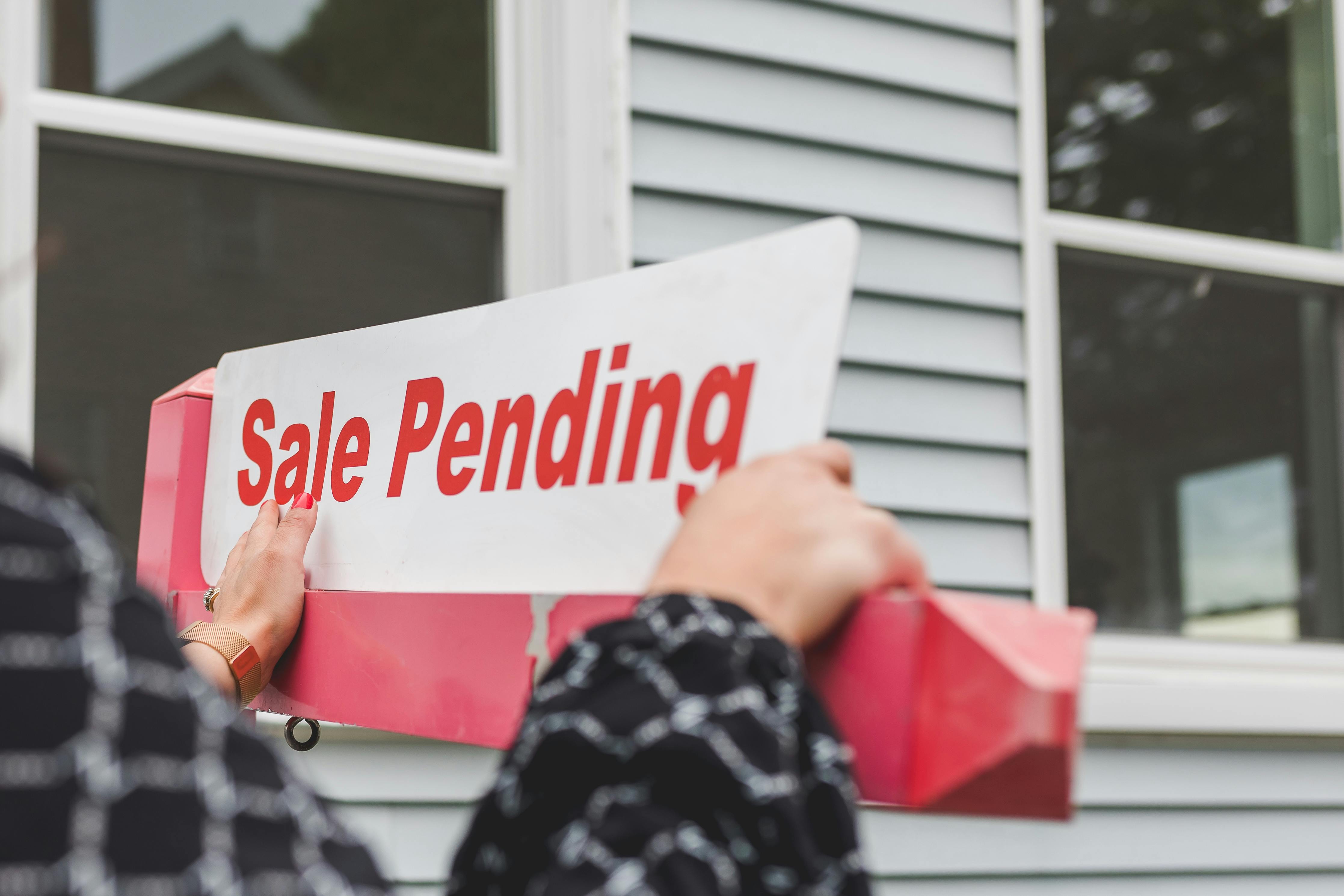When it comes to managing rental properties, one of the most debated topics between landlords and tenants is the issue of late rent fees. In Bloomfield, NJ, where local regulations intersect with New Jersey state law, understanding what counts as a reasonable late fee is not only important for keeping a lease legally compliant but also for building fair and transparent landlord-tenant relationships. With Bloomfield’s own Rent Leveling Board actively overseeing rental practices, landlords must stay informed to avoid costly disputes.
This guide explores the legal framework for late rent fees in Bloomfield, common fee structures, market norms, and practical advice for landlords and tenants alike. By the end, you’ll know what’s legally acceptable, what’s fair in practice, and how to structure lease agreements to protect both sides.
Bloomfield & NJ Legal Requirements for Late Rent Fees
NJ Grace Period: 5 Business Days Law (N.J.S.A. 2A:42-6.1)
One of the most critical laws every landlord and tenant should understand is New Jersey’s mandatory grace period. According to N.J.S.A. 2A:42-6.1, residential tenants in New Jersey must be given five business days after the due date to pay rent before a late fee can legally be applied. This means that if rent is due on the 1st of the month, a landlord cannot apply a late fee until at least the 7th, depending on weekends and holidays.
Failing to follow this law can render a late fee unenforceable in court and expose a landlord to legal disputes. For tenants, this grace period provides a small but crucial buffer against unexpected financial delays.
Requirement to Disclose Late Fee Terms in the Lease
Even if the law allows landlords to charge late fees, these fees must be clearly stated in the lease agreement. Courts in New Jersey have repeatedly rejected attempts to enforce fees that were not explicitly outlined. A generic lease clause that simply says “fees may apply” is not enough; it should specify the exact fee, percentage, or method of calculation, and when it becomes applicable after the grace period.
“Reasonable” Standard under NJ Case Law
New Jersey law does not set a universal cap for late rent fees, but courts often strike down charges deemed excessive. Generally, fees around 5% of the monthly rent are viewed as reasonable. For example, on a $1,500 monthly rent, a late fee of $75 is likely to be upheld. However, charging 10–15% could be considered punitive and unenforceable.

Local Regulations in Bloomfield That May Affect Late Fees
Bloomfield Rent Leveling Board Roles & Rent Increase Rules
Bloomfield is one of several towns in New Jersey that maintains its own Rent Leveling Board, which enforces rent stabilization and provides oversight on tenant complaints. While the board primarily deals with rent increases, it may also review disputes related to lease terms—including late fees—if tenants file a complaint. This means landlords in Bloomfield should go beyond state minimums to ensure their policies meet community standards of fairness.
Lease Types & Rent Control / Rent Leveling Exemptions
Not all properties in Bloomfield are covered under rent leveling rules. For example, newly constructed buildings or owner-occupied duplexes may be exempt. Still, regardless of exemptions, landlords must comply with the state’s five-day grace period rule and ensure late fees remain reasonable.
Common Structures of Late Rent Fees
Flat Fee vs Percentage of Rent
Most late rent fees are structured in one of two ways: a flat fee (e.g., $50 after the grace period) or a percentage of rent (e.g., 5% of the monthly rent). In Bloomfield, both approaches are common, but percentages often provide more proportionality across different rent amounts. For example, a flat $100 fee on a $900 apartment might be excessive, while 5% would result in a $45 charge—more likely to be deemed reasonable.
One-Time vs Daily / Recurring Late Fees
Some landlords attempt to impose a daily penalty (e.g., $10 per day until rent is paid). While this may seem like a deterrent, New Jersey courts tend to scrutinize daily fees more harshly, especially if they add up to more than 5–10% of the rent. A one-time late fee is generally the safer and more enforceable option.
Penalties for Returned Checks
Separate from late fees, landlords may also charge a fee for returned checks (bounced payments). Under New Jersey law, these fees must also be reasonable and stated in the lease. Many landlords set this between $25–$50. Since this is distinct from a late fee, it should not be combined in the same clause.

What is a Reasonable Late Fee in Bloomfield, NJ
Market Norms & Examples (5%)
Across Essex County and surrounding New Jersey markets, landlords typically set late rent fees at around 5% of monthly rent. This benchmark is supported by local landlord associations and cited in multiple property management guides, such as Innago’s overview of New Jersey landlord-tenant laws. A flat fee of $50–$75 is also common, especially for mid-range apartments in Bloomfield.
Size of Rent (High vs Low Rent Units)
Reasonableness also depends on the rent amount. For lower-rent units (e.g., $800/month), even a $75 flat fee may be viewed as disproportionate. In higher-rent apartments (e.g., $2,200/month), a $50 fee may not sufficiently encourage timely payment. Landlords in Bloomfield should consider balancing fairness with effectiveness, often by sticking to a percentage-based model.
Comparison to Other NJ Towns
Compared to nearby towns like Montclair or Newark, Bloomfield landlords tend to follow similar practices, although rent leveling enforcement can make Bloomfield stricter in monitoring complaints. Tenants should be aware that even if they move within Essex County, the late fee rules are largely consistent under state law, but town-specific boards may impact enforcement.
Lease Drafting Tips to Ensure Late Fee Enforceability
Clear Language & Timing
For a late rent fee to be enforceable, the lease must spell out the amount, the grace period, and the due date clearly. For example: “If rent is not received within five (5) business days after the due date, a late fee of five percent (5%) of monthly rent will apply.”
Avoiding Penalties vs Additional Rent Classification
Landlords should avoid language that frames late fees as penalties, as courts may strike them down as punitive. Instead, classify them as “additional rent” to strengthen enforceability under New Jersey law. This classification also allows landlords to recover late fees in eviction proceedings, if necessary.
Documentation & Notices
Finally, landlords should issue a written notice when applying a late fee, keeping a copy for records. This step not only improves transparency but also provides documentation if disputes arise later in Bloomfield’s Rent Leveling Board or small claims court.
Best Practices for Landlords in Bloomfield, NJ
Communicate Fee Schedule Clearly
Transparency is the key to avoiding disputes. Landlords in Bloomfield should provide tenants with a copy of the lease well before signing and take the time to explain the late rent fee policy. If tenants fully understand the grace period, the amount of the fee, and when it applies, they are less likely to challenge it later. A clear and well-communicated fee schedule also helps landlords demonstrate compliance if a tenant files a complaint with the Bloomfield Rent Leveling Board.
Use Reminders & Notices Before Applying Fees
While landlords are not required to send reminders, doing so can reduce late payments significantly. Sending a text, email, or paper notice a few days before rent is due helps tenants stay on track and avoids the need for late fees in the first place. This small step can protect long-term landlord-tenant relationships, especially in communities like Bloomfield where word-of-mouth reputation matters.
Flexibility for Hardship / Special Cases
Although the law allows landlords to apply late fees after the grace period, offering occasional flexibility for tenants facing emergencies can improve tenant retention and reduce turnover costs. For example, waiving a fee once for a long-term tenant who has always paid on time can build goodwill while still maintaining a consistent policy overall.
Sample Late Rent Fee Policies & Language
Sample Lease Clause Templates
One of the most effective ways to avoid confusion is to include a clear, enforceable clause in the lease. Here is an example of a clause that would likely meet New Jersey’s standards:
“Rent is due on the first (1st) day of each month. A five (5) business day grace period is allowed. If rent is not received by the sixth (6th) day of the month, a late fee equal to five percent (5%) of the monthly rent will be charged as additional rent.”
This language aligns with New Jersey’s five-day grace period law and classifies the fee as “additional rent,” which courts often favor.
Sample Notices of Late Fee
When charging a late fee, landlords should also provide a written notice. For example:
“Dear [Tenant Name],
Our records show that your rent payment for [Month] was not received by the end of the five (5) business day grace period. As outlined in your lease, a late fee of $[amount] has been applied to your account.”
Providing written confirmation protects landlords if disputes arise and reinforces a professional approach to property management.
How to Handle Disputes or Challenges over Late Fees
Local Tenant Advocacy, Mediation
Disagreements over late fees are not uncommon. Tenants who believe a fee is unreasonable may seek help from local tenant advocacy groups or directly file a complaint with the Bloomfield Rent Leveling Board. In many cases, mediation can resolve issues before they escalate to legal action. Landlords should approach disputes professionally, keeping discussions focused on the signed lease and applicable laws.
Small Claims Court Process in NJ
If mediation fails, disputes may move to small claims court in Essex County. For amounts under $5,000, small claims court is the typical venue where tenants may challenge late fees, or landlords may sue to recover unpaid amounts. Judges often review whether the fee was disclosed in the lease, whether the five-day grace period was followed, and whether the fee amount was reasonable.
Keep Documentation / Proof
Documentation is critical. Landlords should keep copies of leases, payment records, and late fee notices. These records help prove compliance with New Jersey law and demonstrate that tenants were properly informed. Without documentation, even a legally valid late fee may be dismissed.
Impact on Tenants & Fairness Considerations
Financial Burden on Low-Income Tenants
Late rent fees can disproportionately affect lower-income tenants. A $75 late fee may represent groceries or utility costs for a struggling household. For this reason, the “reasonableness” standard under New Jersey law considers not only landlord costs but also tenant impacts. Landlords in Bloomfield should weigh whether their fee structure strikes the right balance between accountability and fairness.
Equity, Fairness, Avoiding Predatory Practices
While late fees are legal, excessive charges may appear predatory. Charging $200 on a $900 apartment, for instance, would almost certainly be rejected by a judge and could harm a landlord’s reputation in the community. Landlords who keep fees consistent with the 5% benchmark are more likely to avoid conflicts while maintaining trust with tenants.
Recent or Pending Changes to NJ Late Fee Laws
Proposed Laws or Bills
While no statewide cap exists for late fees in New Jersey as of now, legislators occasionally propose tenant-protection measures that could impact future rules. For example, bills have been floated in Trenton that would more strictly regulate fees or extend grace periods. Landlords should monitor state developments, as changes could quickly shift what is considered enforceable.
Trends in Court Rulings
Recent rulings in New Jersey courts continue to emphasize the importance of reasonableness and lease clarity. Judges regularly side with tenants when landlords fail to follow the five-day grace period or impose fees that far exceed the market norm. The trend points to stricter enforcement of tenant protections in cases of ambiguous or excessive late fee policies.
How to Handle Disputes or Challenges over Late Fees
Local Tenant Advocacy & Mediation Options
Tenants who disagree with late rent charges in Bloomfield often turn to local tenant advocacy groups or file complaints directly with the Bloomfield Rent Leveling Board. Mediation is frequently the first step, offering both sides an opportunity to resolve the issue without court intervention. Landlords should be open to this process, as it can prevent costly legal battles and keep relationships intact.
When Small Claims Court Becomes Necessary
If mediation does not resolve the matter, disputes may move to Essex County’s small claims court. Judges review whether the lease included the fee, whether the five-day grace period was honored, and whether the fee amount is fair. Tenants often prevail when landlords fail to document policies clearly, making recordkeeping a vital part of landlord protection.
Documentation & Professionalism
Whether through mediation or court, documentation wins cases. Landlords should maintain signed leases, payment ledgers, and copies of any late fee notices. Presenting this documentation shows good faith and compliance with New Jersey law. Maintaining a professional tone throughout the process also helps avoid escalation.
Impact on Tenants & Fairness Considerations
Balancing Accountability and Compassion
For tenants, late fees can add financial stress to already challenging situations. A $50–$75 charge may not seem significant to a landlord, but it could represent a week of groceries for a tenant household. This is why Bloomfield landlords should aim for a balance: charging fees that encourage timely payments but do not create an undue financial burden.
Avoiding Predatory Practices
New Jersey courts take a dim view of late fee policies that appear punitive. Excessive charges can be struck down and may expose landlords to further scrutiny by municipal boards. Aligning policies with the widely accepted 5% standard protects landlords while maintaining fairness for tenants.
Recent or Pending Changes to NJ Late Fee Laws
Monitoring Legislative Updates
Although current law sets only the five-day grace period requirement, state lawmakers periodically consider new regulations around late fees. These proposed changes may involve caps, stricter disclosure requirements, or longer grace periods. Landlords should keep an eye on legislative updates to ensure they remain compliant with any adjustments.
Judicial Trends
In recent cases, judges have leaned toward tenant protection, striking down fees that exceed 10% of rent or that were not clearly spelled out in leases. The trend reflects a judicial emphasis on fairness, clarity, and compliance with New Jersey’s statutory grace period.
Summary — What Landlords Should Do & What Tenants Should Know
In Bloomfield, NJ, reasonable late rent fees come down to three critical points:
- Landlords must allow the five business day grace period before charging fees.
- Fees must be clearly stated in the lease—ambiguity makes them unenforceable.
- Late fees around 5% of rent or $50–$75 flat are typically considered fair and enforceable.
For tenants, this means understanding their rights and ensuring they review leases before signing. For landlords, it means drafting clear lease clauses, keeping fees within reasonable bounds, and maintaining proper documentation. Following these steps protects both parties and fosters a healthier rental environment in Bloomfield.
Frequently Asked Questions
What is the legal grace period for rent in New Jersey?
Tenants must be given a five business day grace period after rent is due before a landlord can apply a late fee (N.J.S.A. 2A:42-6.1).
How much can a landlord charge for late rent in Bloomfield, NJ?
While there’s no statewide cap, courts generally consider 5% of monthly rent or about $50–$75 a reasonable late fee.
Can landlords in Bloomfield charge daily late fees?
Daily fees are riskier and often viewed as excessive. A one-time flat fee or percentage is safer and more enforceable.
Does Bloomfield’s Rent Leveling Board enforce late fee rules?
The board primarily handles rent increases, but tenants can raise late fee complaints, so landlords should stay compliant and fair.
What happens if a late fee is challenged in court?
A judge will look at whether the lease disclosed the fee, whether the grace period was observed, and whether the fee amount was reasonable compared to rent.
Take the Next Step
If you’re a landlord in Bloomfield, NJ, now is the time to review your lease agreements and late fee policies. Are your clauses clear, legal, and fair? Do your tenants understand their rights and obligations? Avoid unnecessary disputes by ensuring compliance with New Jersey law and local standards. For expert guidance and hands-on property management, explore resources like managing tenants who consistently pay rent late or raising rent after a lease expires in Bloomfield.
Ready to protect your rental income while staying compliant? Contact RentShield Property Management today to discuss your late rent fee policies and ensure your leases meet both state and local standards.






